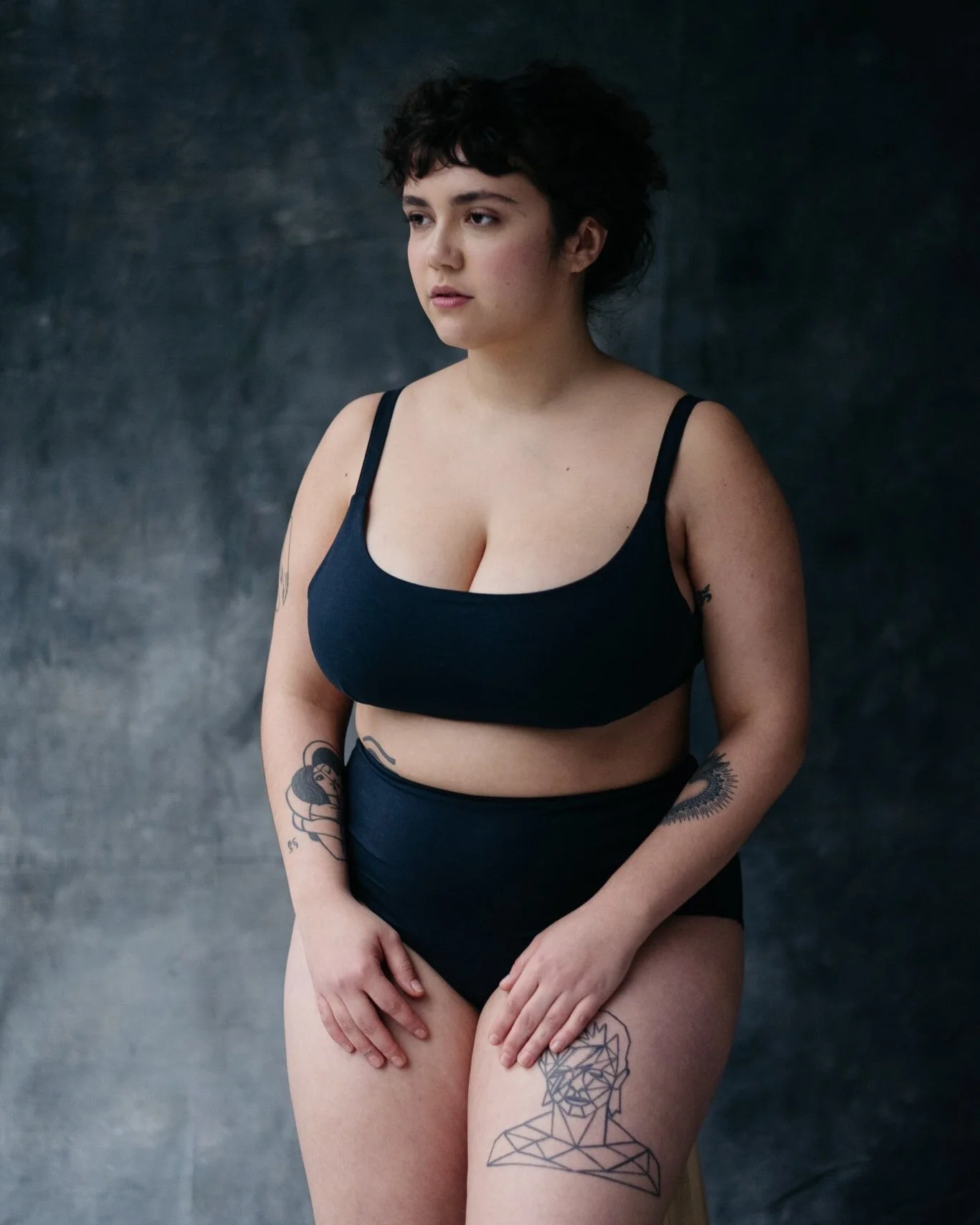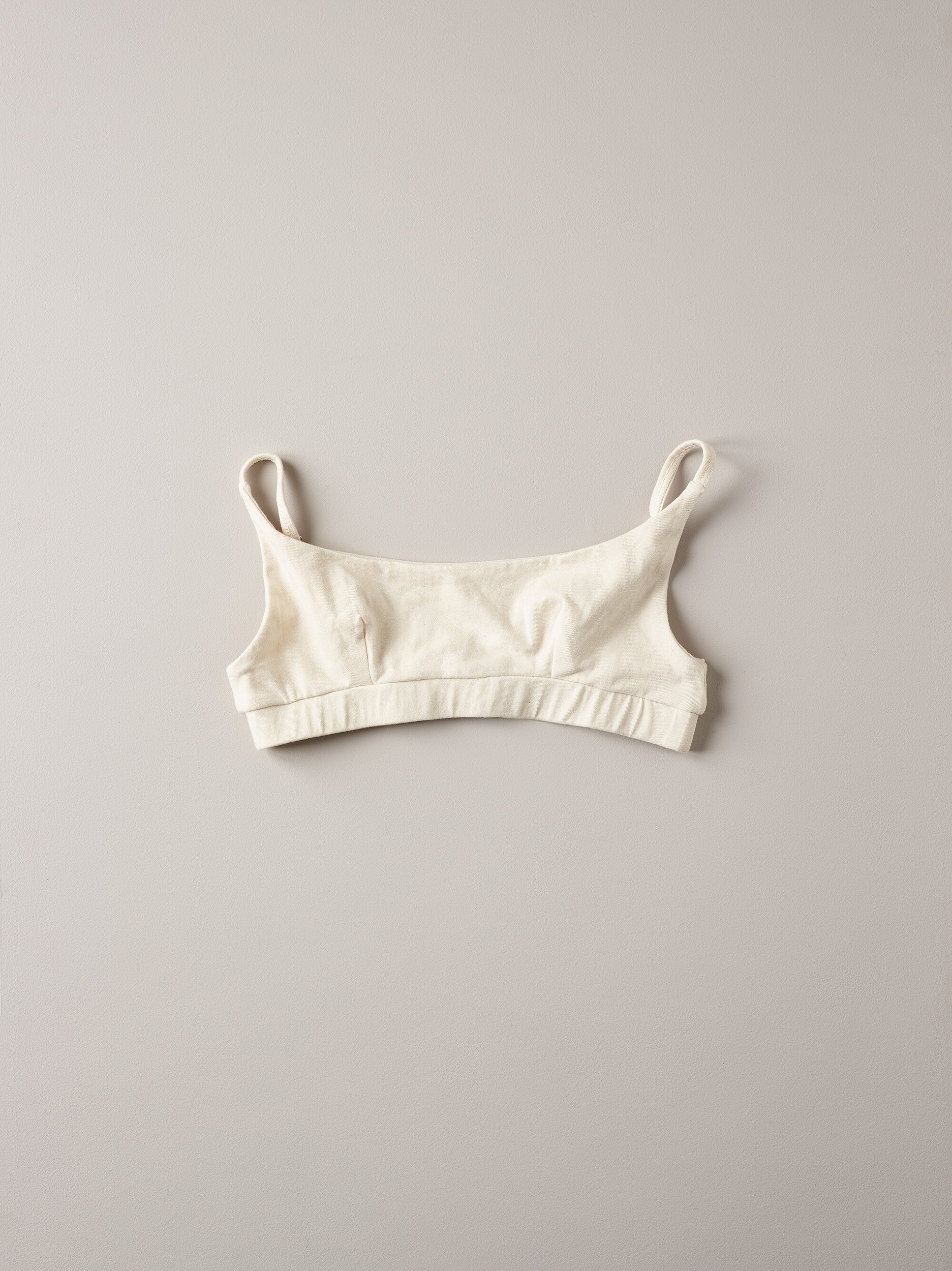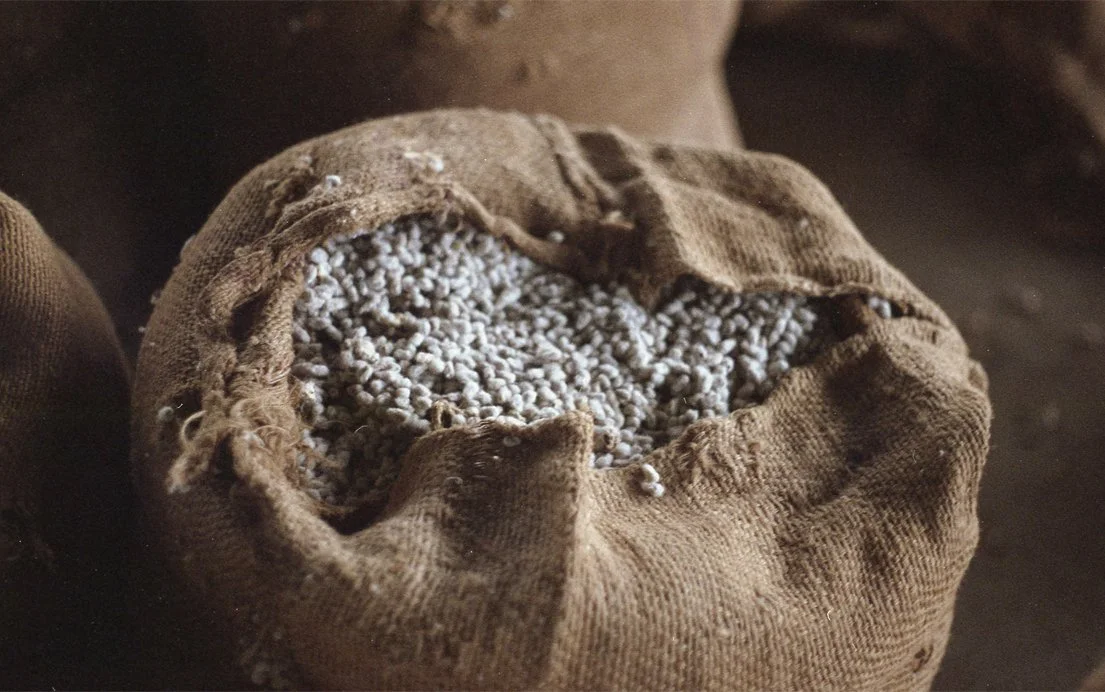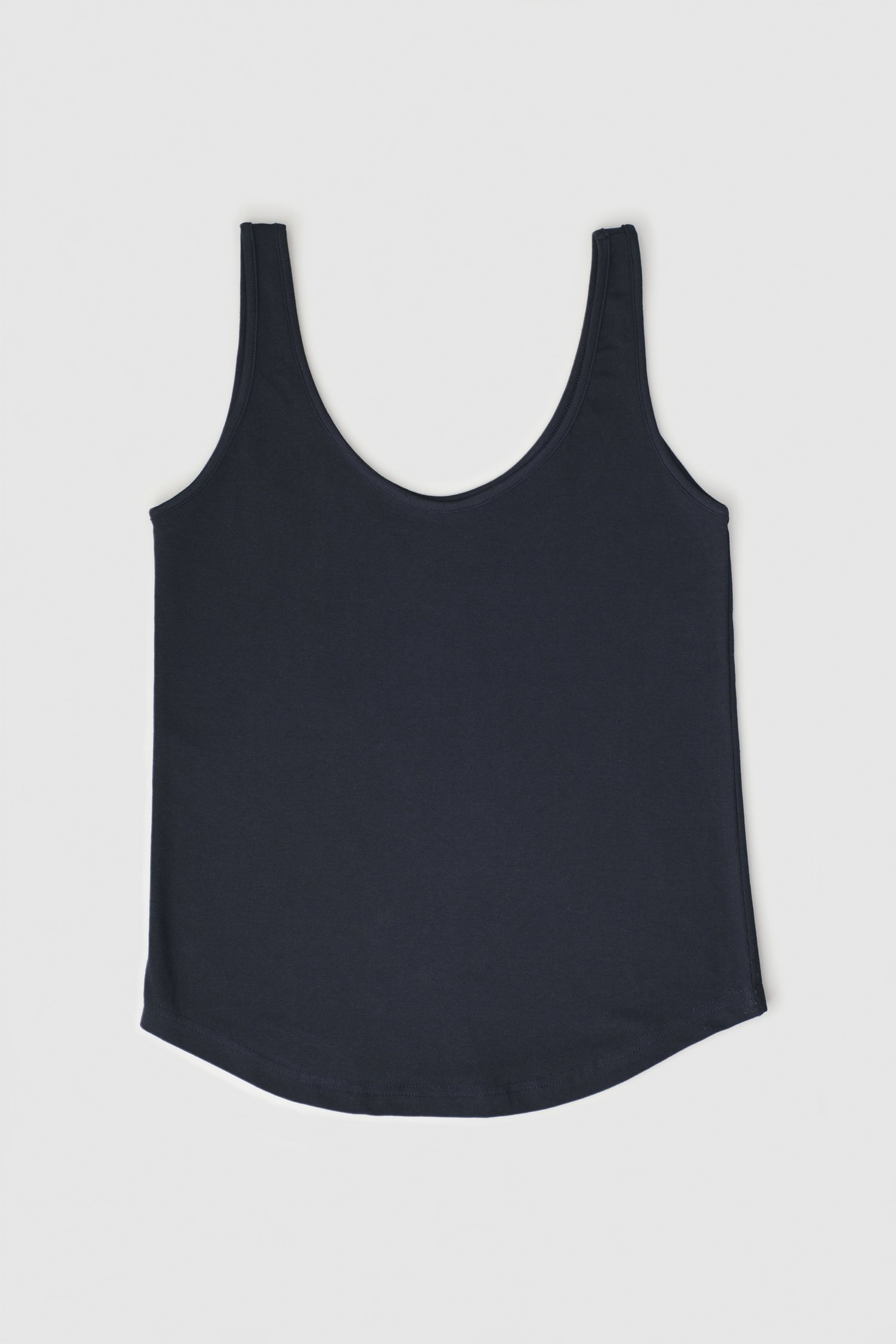PICO + the importance of sustainable underwear
As the days begin to warm, it’s important to help our bodies breathe with cool cotton base layers. PICO was founded by school friends Phoebe Hunter-McIlveen and Isobel Williams-Ellis in 2016, with the intention to make sure our underwear is fully traceable. Making thoughtful decisions about the clothes we wear begins with what we pull on first every morning, so it follows that our underthings should be chosen with the intention of being both gentle on the earth, and our bodies. I’ve chosen to focus in on PICO as I’m a faithful convert to their brand. Over the past year, I’ve slowly switched out a very tired and sometimes synthetic underwear drawer for a curation of their considered cotton goods, and their line has become one of my favourite things to chat about with our customers. To me, it seems a given that we should place so much importance on something that’s closest to our skin; the most essential and hardworking items in our wardrobes should also be the most carefully considered.
PICO are a super-transparent company that offer a detailed run-down of every part of the process their offerings encounter before they arrive on our shelves here at Nadinoo. They work directly with Mila Fair Clothing, a small living-wage factory in Tiripur of southern India, using organic cotton sourced from the pooled resources of farmers’ cooperatives. Seeds are grown without harmful pesticides, and use 91% less water than conventional cotton. After being harvested by hand five or six months post-planting and spun into a cotton jersey, the fabric is dyed using Oeko-Tex and GOTS certified dyes within a zero-waste unit. Oeko-Tex standards ensure fabrics and dyes are free of any damaging chemicals, whilst GOTS grades prove the materials used are organic and comply with social and environmental criteria. The fabric is then cut, stitched, printed, and pressed by a small local team.
The zero-waste process means that although only the highest quality cotton fibres are cleaned and spun into the yarn of PICO pieces, lower-quality fibres continue their lives as mattress inners, whilst the remnants of the seeds themselves are used for oil and cattle feed. 95% of the excess water is cleaned and returned to a drinkable state, with the remaining 5% left to form a cement cake to supplement building materials. The practice of making PICO undergarments involves skilled, involved work to ensure the process runs smoothly and safely with the attention to detail that only human eyes and hands can gift. Working with Mila Fair Clothing also contributes to a Fairtrade fund that supports communities local to the workforce and helps maintain the ethical principles of fair labour, decent wages, and opportunities for disadvantaged producers.
Something that often comes up when I speak about PICO underwear with customers is price point, and the idea that these pieces can be a sort of investment. It can be a shift to consider buying £20 underwear when you’ve become accustomed to packs of multiples for half the price, but it’s essential to understand why sustainable clothing is more expensive. Small batch production ensures higher-quality goods - it’s more expensive for the company, but equates to less waste and better products. Using ethically-sourced materials like organic cotton also pushes the cost upward for small makers, but avoids the excessive water usage and pollution of conventional cotton. And most importantly, on a human level, workers are paid well. In 2021, The Fashion Transparency Index found that 99% the world’s 250 largest fast fashion brands choose not to disclose the wages of their workers, which becomes a major red flag when you ask why these huge producers feel uncomfortable with transparency. All of these things can be accounted for in the number you read on the pricing label of a garment, and the action of supporting slow fashion producers effectively boycotts those who desire to trade customer ignorance for suspiciously low prices.
Unlike the relationship between the earth and the food we eat, the link between clothing and its provenance is less tangible, and easier to forget. Making each process available to our customers through a clear narrative lets you know exactly what you choose to adorn yourself with - something so important when it comes to the most intimate garments - and recognises the time-honoured connections between maker, environment, raw materials, and the finished product.
We love PICO and their goods for all of these reasons. They are slow fashion makers faithful to our shared effort to be kind to the world, to the people that craft our garments, and to your own body. You can find their beautifully designed and crafted underthings in our Slow Living shop - we hope you enjoy them just as much as we do, especially as the heat of the approaching Summer prompts us to consider how our choices create a healthy environment for our bodies.
Words by Lily Burrows










